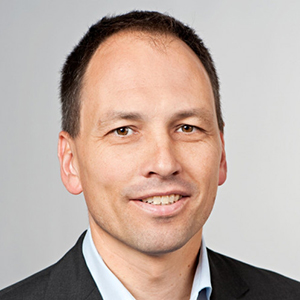
Research papers
2020: Finalist INFORMS Behavioral Operations Working Paper Award (with Frank Hage and Sebastian Schiffels)
MOOCs Lean Six Sigma Yellow and Green Belt Programs: Quantitative Tools for Quality and Productivity (with Holly Ott and Reiner Hutwelker)
Martin Grunow is Professor of Production and Supply Chain Management at the Technical University of Munich. He is head of the German Operation Research Society’s Supply Chain Management Section. Previously he held a Professorship in Operations Management at Technical University Denmark, worked at Technical University Berlin and in the R&D Department of Degussa, a multinational company producing special chemicals.
His research interests are in production and logistics management, with a focus on the process, electronics and automotive industries. Martin is co-principal investigator for a research training group on “Advanced Optimisation in the Networked Economy“ funded by Deutsche Forschungsgemeinschaft DFG. He teaches MOOCs on Quality Engineering and Lean with more than 350,000 participants from all over the world.
Martin has co-authored more than 50 research publications that appeared in journals such as IISE Transactions, European Journal of Operational Research, CIRP Annals, Computers & Chemical Engineering, Flexible Services and Manufacturing Journal, International Journal of Production Economics, International Journal of Production Research, and OR Spectrum. He acts as an editor for the journals OR Spectrum (Assistant Editor, 2001-2008; Editor, 2008-2021), Flexible Services and Manufacturing Journal (Area Editor, 2009-2016; Associate Editor, since 2017), and Business Research. He has been on the program committee of more than 50 international conferences and has organized numerous special tracks.
Production and Supply Chain Management of Biopharmaceuticals: Biopharmaceuticals are pharmaceutical drugs derived from biological sources used for therapeutic or diagnostic purposes. They possess a particularly high efficacy and efficiency in treating complex health conditions, like cancer, inflammatory diseases or metabolic disorders. The primary biological production process is structured into two main stages: The upstream process (USP) contains all production steps related to the cultivation of the living organisms, while the down-stream process (DSP) comprises the separation and purification of the target molecule. We also aims at maximizing the productivity of the whole system by determining the optimal decision policy of the integrated production process. Additionally, we integrating non-linear production kinetics into production scheduling models in order to react flexibly to operational uncertainties and disturbances in downstream operations.
Master production scheduling for crop protection products: Agrochemical companies manage complex world-wide supply chains with a large product portfolio, long production lead times and complex planning problems. Since the use of crop protection products follows the growth cycle of crops, the product demand exhibits strong seasonality. Accurately forecasting the seasonal demand is limited by unpredictable parameters such as weather conditions. Production and supply planners are thus looking for advanced strategies to manage demand uncertainty and to ensure efficient operations throughout the supply chain. To this end, we develop novel strategies to overcome the barriers preventing the use of conventional stochastic programming in master production scheduling. By aggregating products into optimal families, we allow production recourse and hence improve planning flexibility. Additionally, we guide planners in the choice of suitable methodologies for reducing nervousness in raw-material demand and production plans.